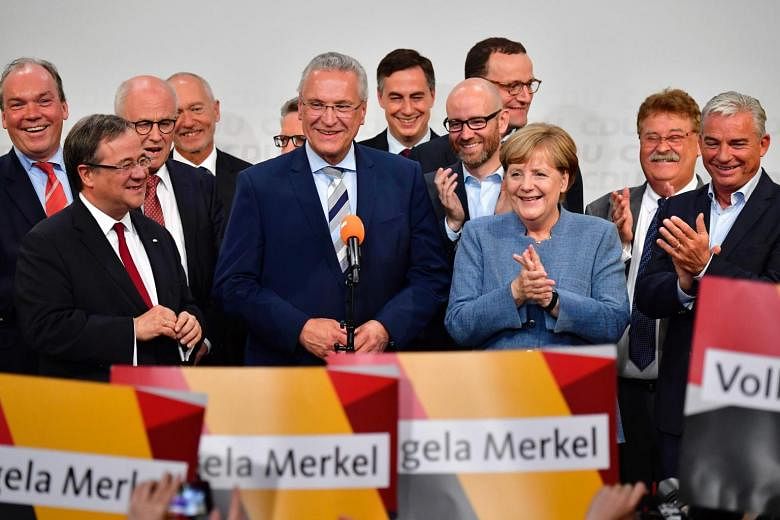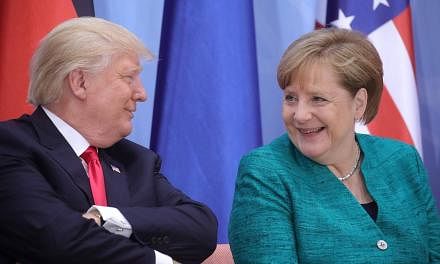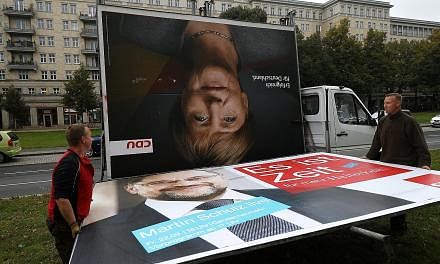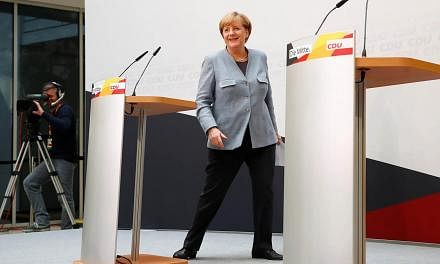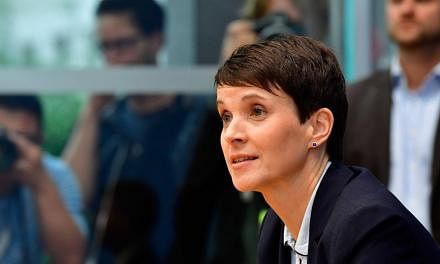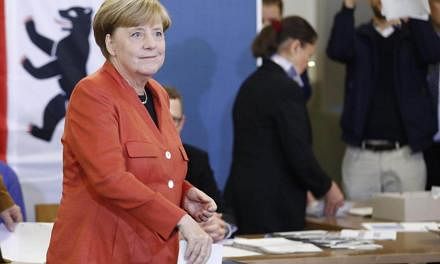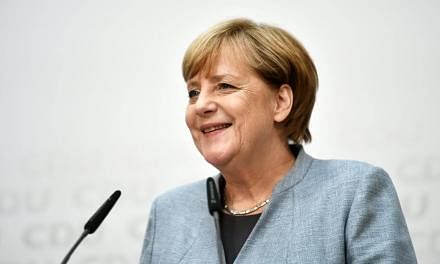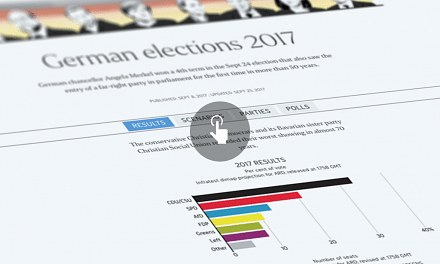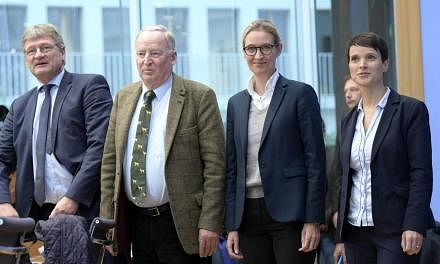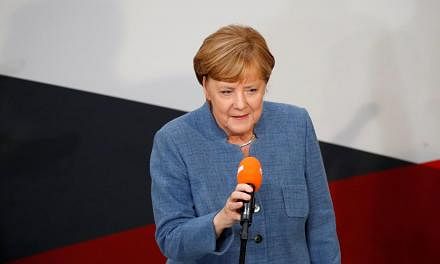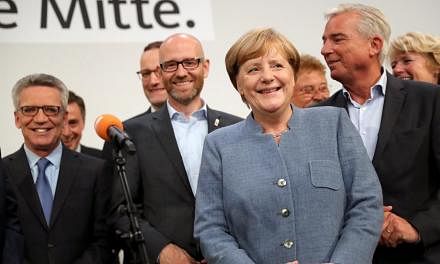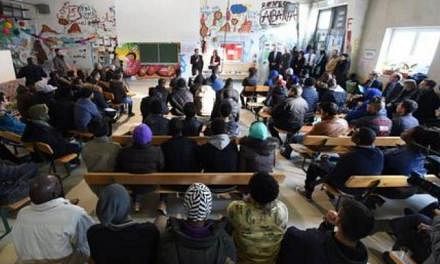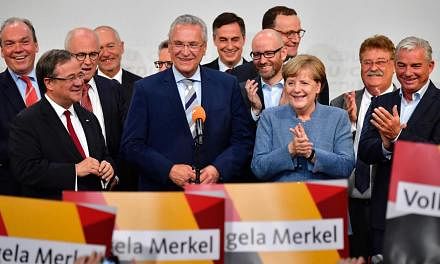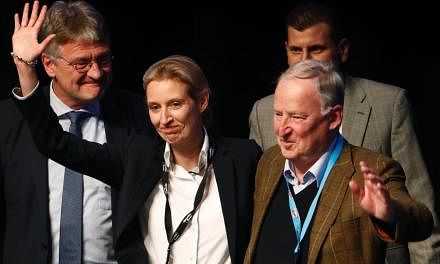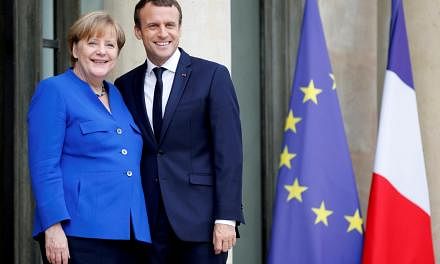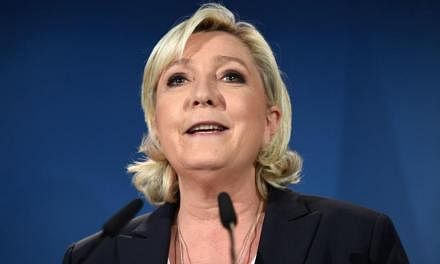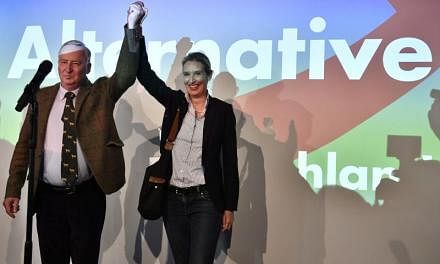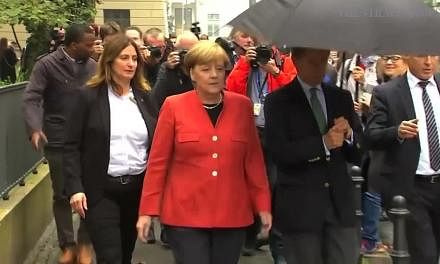BERLIN - Chancellor Angela Merkel clinched a fourth term in Germany's election on Sunday (Sept 24), but her victory was clouded by the entry into parliament of the far-right Alternative for Germany (AfD), the first such party to join parliament in more than half a century.
Commentators called the AfD's strong performance a "watershed moment" in the history of the German republic. The top-selling Bild daily spoke of a "political earthquake".
Here are six things to know about the election results:
1. Small far-right party AfD is big winner, enters Bundestag for the first time
It is the first time a far-right party has entered the Bundestag, or the lower house, in more than half a century.
The AfD, set up just four years ago, took more than 13 per cent of the votes - nearly three times the 4.7 per cent it received in 2013 - making it now the third largest political party in Germany after the SPD.
It was a significant showing of voter anger over immigration and inequality as support for the two main parties sagged from four years ago. Experts say the results prove that far-right populism - along with anxieties over security and national identity - is far from dead in Europe.
2. It is the worst showing by Dr Merkel's bloc
Damaged by her handling of the 2015 migrant crisis, Dr Merkel's conservative Christian Democratic Union (CDU) and its Bavarian sister party Christian Social Union (CSU) scored 32.9 per cent of the votes, considerably less than the 41.5 per cent in 2013.
It was the bloc's worst showing in almost 70 years (since 1949), but it will remain the largest in parliament.
She now turns to the complex task of sounding out partners in a potentially fragile coalition.
3. Social Democrats end alliance with Dr Merkel, will lead opposition
The CDU-CSU's current coalition partner - the Social Democratics (SPD) - also saw its worst election showing since 1949, winning only 20.8 per cent of the votes, 5 per cent less than what it won in the last election.
Leader Martin Schulz said the party will end its alliance with Dr Merkel's bloc and it will return to the opposition bench.
That also means that he will lead the opposition, and not the far-right AfD.
4. So, who will join Dr Merkel's bloc in a coalition to rule Germany?
With the SDP opting to go into opposition and not renew their coalition with her bloc of the past four years, Dr Merkel's options are narrow. The process of forming a new coalition could take months.
She said she was sure a coalition would be agreed by Christmas.
Industry leaders have urged Dr Merkel to move fast to build a government. "Our companies need clear signals. Now it's all about averting damage to Germany as a place of business," Dieter Kempf, president of the BDI industry association, said.
5. What are her coalition options?
With the possibility of an alliance with the SPD rejected, the results put pro-business Free Democrats (FDP) and environmentalist Green Party in a kingmaker role.
FDP leader Christian Lindner, an ambitious 38-year-old who preaches an ultra hard line on Europe and has unsettled the German political establishment, said he is open to coalition talks with Dr Merkel but Germany needs a change of course. The Greens' Katrin Goering-Eckardt said: "We will see if there can be cooperation."
However, a three-way tie-up of Dr Merkel's conservatives, the FDP and the Greens is known as a "Jamaica" coalition because the black, yellow and green colours of the three parties match the Jamaican flag, is widely seen as inherently unstable.
The Greens, who are keen on regulation, and the business-friendly FDP are at opposite ends of the political spectrum and a clash of policy visions would be likely on tax, energy, the European Union and migrants.
6. Dr Merkel joins Helmut Kohl, Konrad Adenauer as leaders with 4 election wins
Despite losing support, Dr Merkel, Europe's longest serving leader, will join her mentor, the late Helmut Kohl who reunified Germany, and Konrad Adenauer, who led Germany's rebirth after World War II, as the only post-war chancellors to win four national elections.
SOURCE: Reuters, AFP, NYTimes
